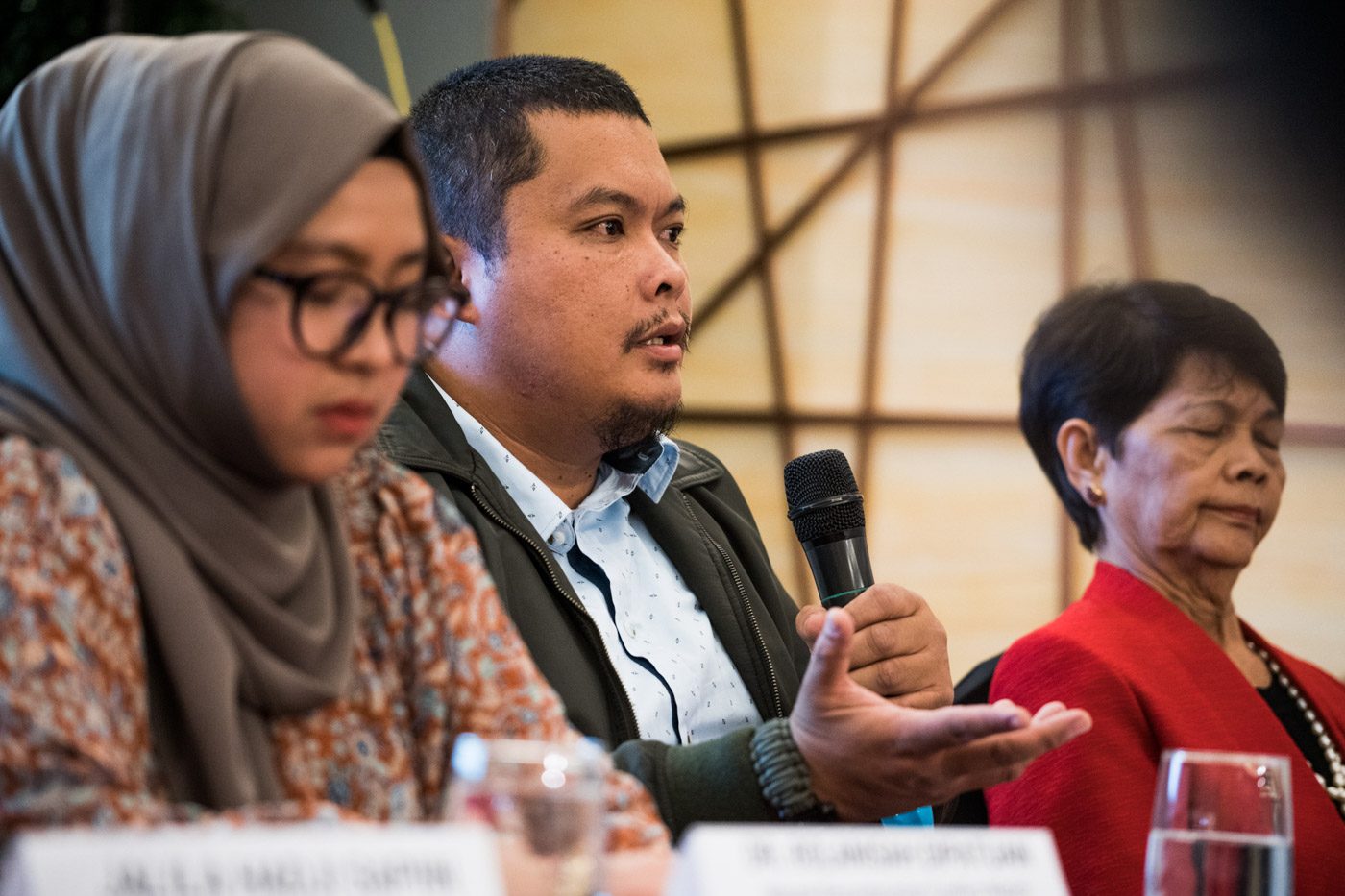SUMMARY
This is AI generated summarization, which may have errors. For context, always refer to the full article.

MANILA, Philippines – A group of professionals and experts from Marawi aired their frustrations and grievances against the government’s rehabilitation task force, slamming a lack of transparency and seeming lack of sensitivity for the plight of residents.
“It appears clearly to us that we are being treated as if we don’t really matter at all,” said the Marawi Reconstruction Conflict Watch (MRCW) on Thursday, November 7, during a press briefing in Quezon City.
The group, which has been monitoring the government’s Marawi rehabilitation since 2018, said they decided to speak up now after repeated delays in the government’s timeline for the return of residents to the city’s Most Affected Area and no clear public accounting of funds used for the effort.
“We claim discrimination because the government does not believe that the local community, its citizens, and the private sector are entitled to any compensation for the destruction of its properties,” they said.
Task Force Bangon Marawi (TFBM) and several lawmakers expressed support for a compensation bill, House Bill 3453, or the Marawi Siege Victims Compensation Act of 2019.
It seeks to provide payment to owners of properties damaged or destroyed during the 2017 Marawi siege. However, compensation will only be given to residents who have no financial capability to have their homes rebuilt.
“It just dawned on us that we are really being blamed when we realized that, in the compensation bill being passed in the Congress, the private sector was excluded, and this is supported by statements that Marawi people are rich anyway and there are lots of drug lords there,” said Rolanisah Dipatuan, a health sector representative in MRCW.
She was referring to controversial statements made by President Rodrigo Duterte that he would not spend government money to rebuild properties of rich Marawi residents.
“I don’t think that I should be spending for their buildings. I won’t spend on that. The people there have lots of money anyway. Every Maranao, there is a businessman. The shabu trade is part of that. They have money. The debate there is whether I would be also building the same kind that they lost. I don’t think I am ready for that,” he had said in April.
Duterte has not certified the compensation bill as urgent. While the House has a bill under the 18th Congress, a counterpart measure has yet to be filed in the Senate. Then-senator Bam Aquino had filed one under the previous Congress.
Rehabilitation czar Eduardo del Rosario, in a Rappler interview, expressed optimism that senators would support such a bill and hopes a law will be passed “within the first quarter of next year.”
‘Pang-photo ops lang kami?’
Feeding their vexation is an observation that government press releases about Marawi accomplishments don’t seem to match what residents, especially internally displaced persons (IDPs), are feeling and seeing on the ground.
Sapiin said many young IDPs don’t benefit from the assistance or accomplished project they see broadcast to the public.
“Napi-feel namin na kaming youth, ginagamit lang para sa photo ops,” she said. (We feel that we, the youth, are only being used for photo opportunities.)
Saripada “Tong” Pacasum Jr said government agencies or aid groups should make the effort of finding out what type of assistance IDPs would really use. Imposing assistance that turns out to be ill-fitting or impractical for IDPs would only mean wasted resources.
He pointed out the practice of distributing free stoves to IDPs, which they end up selling in places like Iligan City. There are also some livelihood programs that give out “starter kits” for baking but not all IDPs who need work would have skills or interest in baking.
“The approach is wrong. They should’ve just given cash so they [IDPs] can use it for whatever they really need,” said Pacasum.
The mismatch in aid has led people like him to think the government is just going through the motions for the sake of racking up accomplishment statistics.
“Pang-liquidate lang ba kami? You do all these programs, dami-daming training, ‘Sige liquidate it, picture tayo diyan, ‘binigay natin ito.’ ‘Yun ang reality sa baba. Nakakasuka talaga na people are taking advantage of things na – buhay ito ng mga tao,” said a visibly frustrated Pacasum.
(Are we just for liquidation purposes? You do all these programs, so many trainings, “Okay, liquidate it, take a photo that we gave this away.” That’s the reality on the ground. It’s sickening that people are taking advantage of [the situation] – these are people’s lives.)
Where’s the money?
The group also slammed TFBM for not informing the public of how government funds and donations from outside parties had been used.
In a November 5 House subcommittee hearing on Marawi rehabilitation which they witnessed, the MRCW members said government officials were unable to explain where the funds went.
Pacasum described the officials as “unprepared.” Top brass like TFBM chairman Del Rosario did not even attend.
“Actions like this are an insult to us,” he said in Filipino.
Fedelinda Tawagon, also a MRCW member, said funds could be used for a host of services, like assistance to private schools inside Marawi and better healthcare.
“Many of the young people who are in Marawi City have to be content with the temporary kind of education because they do not have building facilities, better education faciltiies, as well as better teachers who have less trauma,” she said.
The group looks forward to the House subcommittee on Marawi rehabilitation’s promised hearing to be held in the city itself in the coming weeks.
This could be a chance, they said, for lawmakers to hear the side of Marawi private sector groups and civil society. Rappler.com
Add a comment
How does this make you feel?
There are no comments yet. Add your comment to start the conversation.